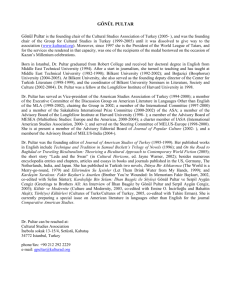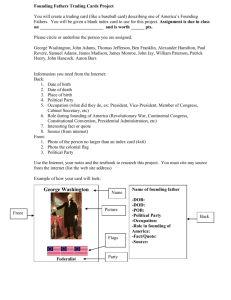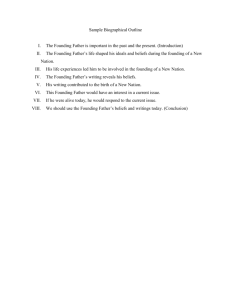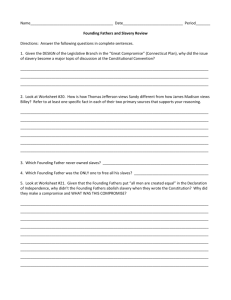Globalization as the Product of Nationalism
advertisement
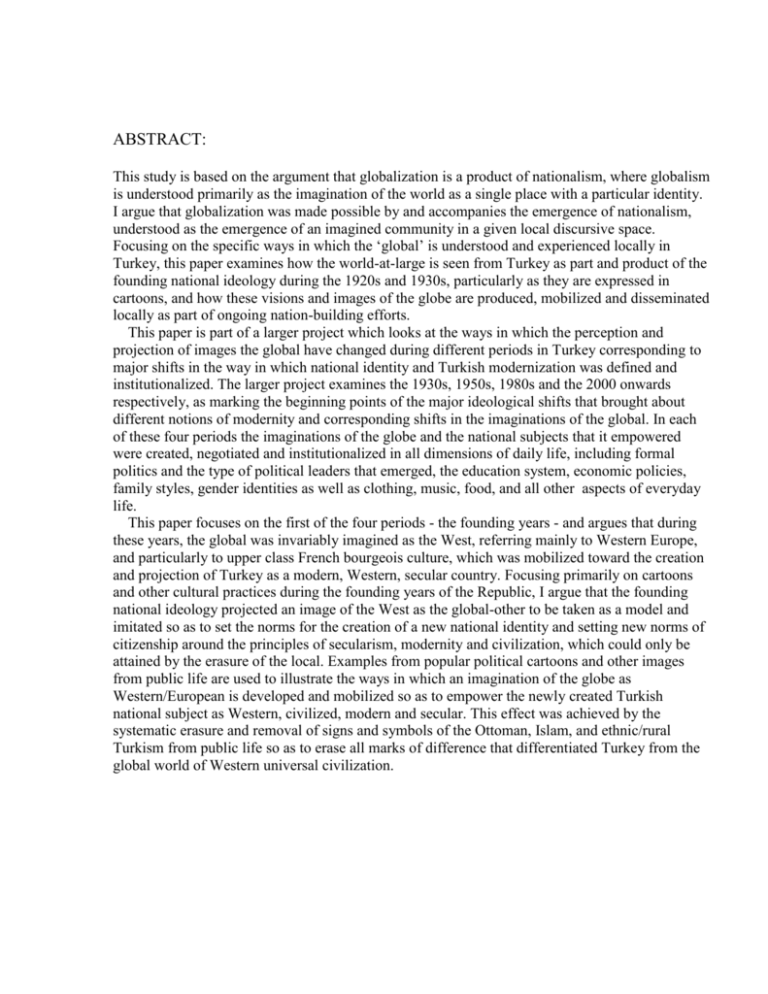
ABSTRACT: This study is based on the argument that globalization is a product of nationalism, where globalism is understood primarily as the imagination of the world as a single place with a particular identity. I argue that globalization was made possible by and accompanies the emergence of nationalism, understood as the emergence of an imagined community in a given local discursive space. Focusing on the specific ways in which the ‘global’ is understood and experienced locally in Turkey, this paper examines how the world-at-large is seen from Turkey as part and product of the founding national ideology during the 1920s and 1930s, particularly as they are expressed in cartoons, and how these visions and images of the globe are produced, mobilized and disseminated locally as part of ongoing nation-building efforts. This paper is part of a larger project which looks at the ways in which the perception and projection of images the global have changed during different periods in Turkey corresponding to major shifts in the way in which national identity and Turkish modernization was defined and institutionalized. The larger project examines the 1930s, 1950s, 1980s and the 2000 onwards respectively, as marking the beginning points of the major ideological shifts that brought about different notions of modernity and corresponding shifts in the imaginations of the global. In each of these four periods the imaginations of the globe and the national subjects that it empowered were created, negotiated and institutionalized in all dimensions of daily life, including formal politics and the type of political leaders that emerged, the education system, economic policies, family styles, gender identities as well as clothing, music, food, and all other aspects of everyday life. This paper focuses on the first of the four periods - the founding years - and argues that during these years, the global was invariably imagined as the West, referring mainly to Western Europe, and particularly to upper class French bourgeois culture, which was mobilized toward the creation and projection of Turkey as a modern, Western, secular country. Focusing primarily on cartoons and other cultural practices during the founding years of the Republic, I argue that the founding national ideology projected an image of the West as the global-other to be taken as a model and imitated so as to set the norms for the creation of a new national identity and setting new norms of citizenship around the principles of secularism, modernity and civilization, which could only be attained by the erasure of the local. Examples from popular political cartoons and other images from public life are used to illustrate the ways in which an imagination of the globe as Western/European is developed and mobilized so as to empower the newly created Turkish national subject as Western, civilized, modern and secular. This effect was achieved by the systematic erasure and removal of signs and symbols of the Ottoman, Islam, and ethnic/rural Turkism from public life so as to erase all marks of difference that differentiated Turkey from the global world of Western universal civilization.
